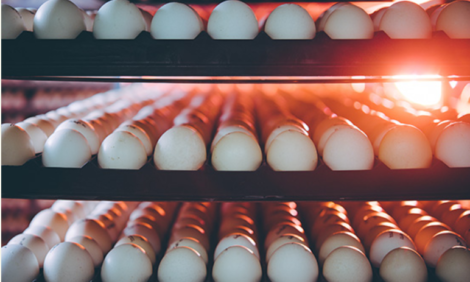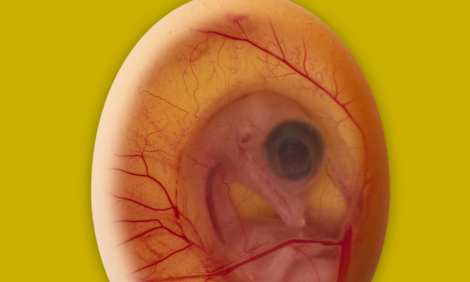



Govt Must Put Farming, Food at Centre of Brexit Battleground, Says IFA
IRELAND - IFA President Joe Healy has said farming and food will have to be centre stage in the Irish Government’s position as the formal negotiations on Brexit begin.“The implications are very serious for our largest indigenous industry given the significance of the UK market for our food exports. No sector faces a greater threat from Brexit and we expect a strong negotiating stance by our political leaders to achieve the best outcome for Irish farming,” Mr Healy said.
Mr Healy said the triggering of Article 50 today must concentrate the minds of everybody to deliver a deal that prioritises the core economic issues.
It must clearly set out a framework for the future relationship between the EU and the UK. The IFA President has met the Minister for Agriculture Michael Creed to set out the key priorities for farming and food in the IFA policy paper Brexit: The Imperatives for Irish Farmers & the Agri-Food Sector.
“The Minister understands our position in and is acutely aware of the importance of placing our issues at the top of the agenda. IFA wants to maintain the closest possible trading relationship between the UK and EU, while preserving the value of the UK market; and a strong CAP budget following the UK’s departure, which is critical for farm incomes, farm output and economic activity in rural Ireland.”
IFA will hold a major Brexit event on Monday, 24 April next, ahead of the crucial EU Summit on Saturday, 29 April, at which EU leaders will set out their negotiating position. EU Commissioner for Agriculture Phil Hogan, the Minister for Agriculture Michael Creed, IFA representatives and industry leaders will speak at the event in Goffs, Co Kildare which will be attended by over 600 farmers.
The President of COPA Martin Merrild, MEP Mairead McGuinness, First Vice-President of the European Parliament and Barclay Bell, President of the Ulster Farmers’ Union will also address farmers.
IFA Chief Economist Rowena Dwyer said IFA has identified that, if the UK exits the Single Market and Customs Union, there must be a Comprehensive Free Trade Agreement between the EU and UK, which would include the following specific elements for agriculture and food:
- Tariff-free trade for agricultural products and food;
- Maintenance of equivalent standards on food safety, animal health, welfare and the environment; and
- Application of the Common External Tariff for imports to both the EU and UK.
Rowena Dwyer said, "The threat of Brexit is the most significant challenge facing our farming and food sector in the history of the State, with 40 per cent of our food exports going to the UK. He said farmers expect our Government to launch a major diplomatic offensive at EU level that places our issues at the heart of the negotiations.
“The implications of a hard Brexit are stark: the ESRI estimates a potential reduction of EU trade to the UK of over 60 per cent for dairy and 85 per cent for meat. Translating this to an Irish context would mean a fall of €1.5bn in meat exports, with dairy exports falling by over €600m.”
Irish farming and the agri-food sector is particularly vulnerable to Brexit due to:
- A high dependence on the UK market;
- High EU tariff protection applying to major agricultural products;
- The land border with Northern Ireland, with the potential to disrupt trade flows, and undermine animal health co-operation; and
- The importance of the CAP budget to farm income – UK is a net contributor.
IFA’s Project Team led by the President Joe Healy will be undertaking high level contacts with the Oireachtas, Government Departments, the EU Commission and the EU Parliament in the coming weeks. IFA will also be engaging with the wider agri-food sector and with farming organisations across Europe.








